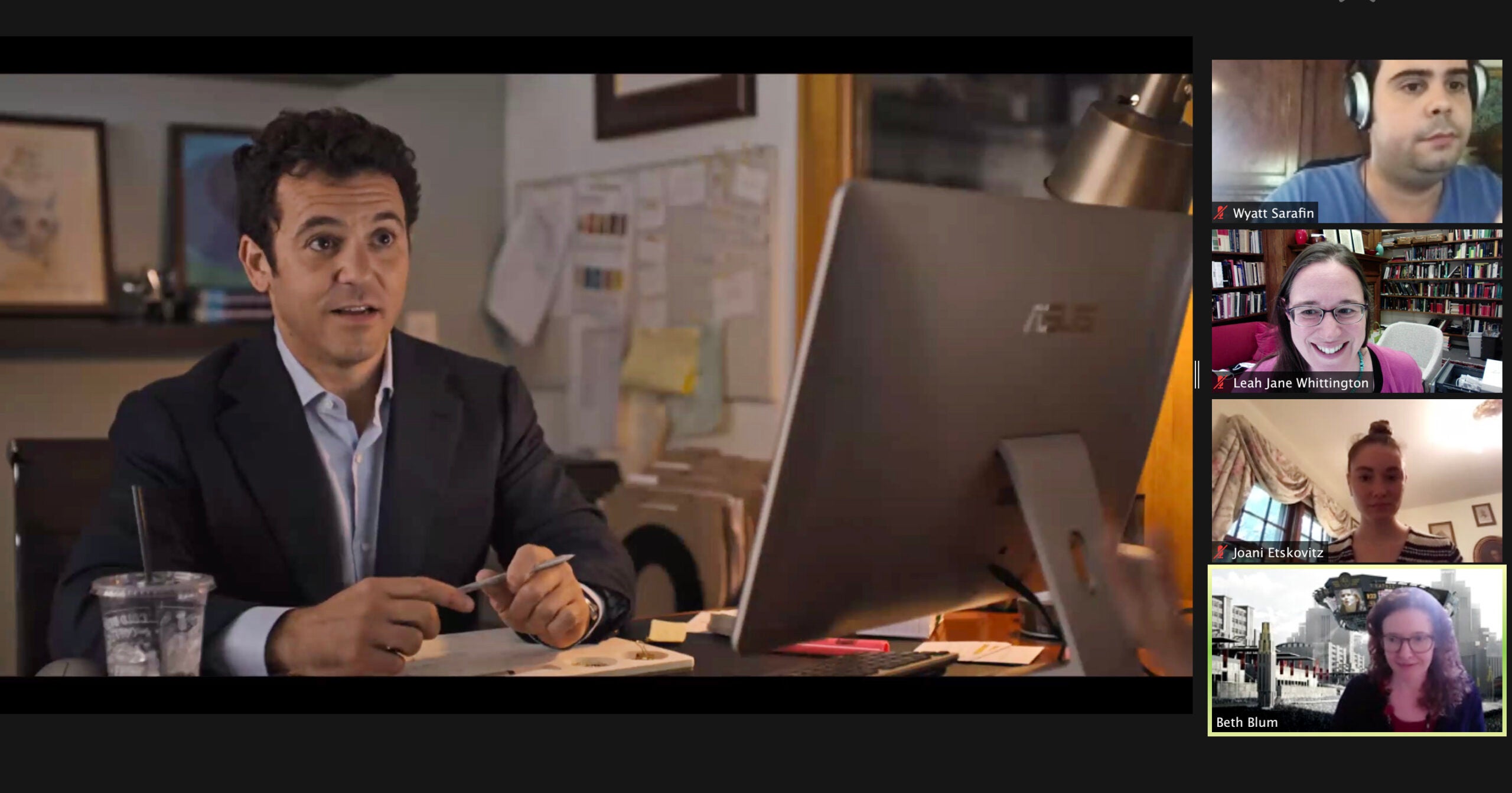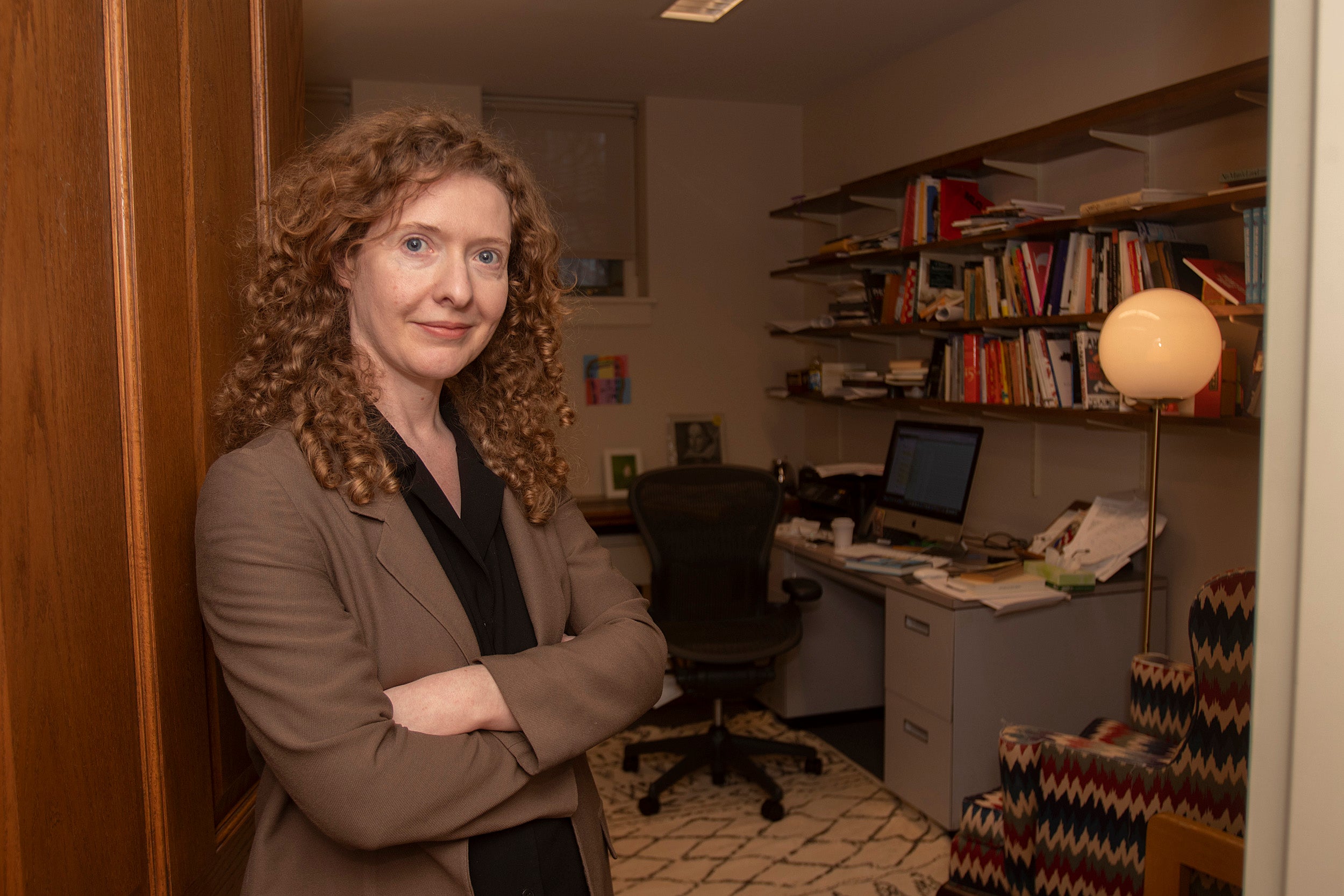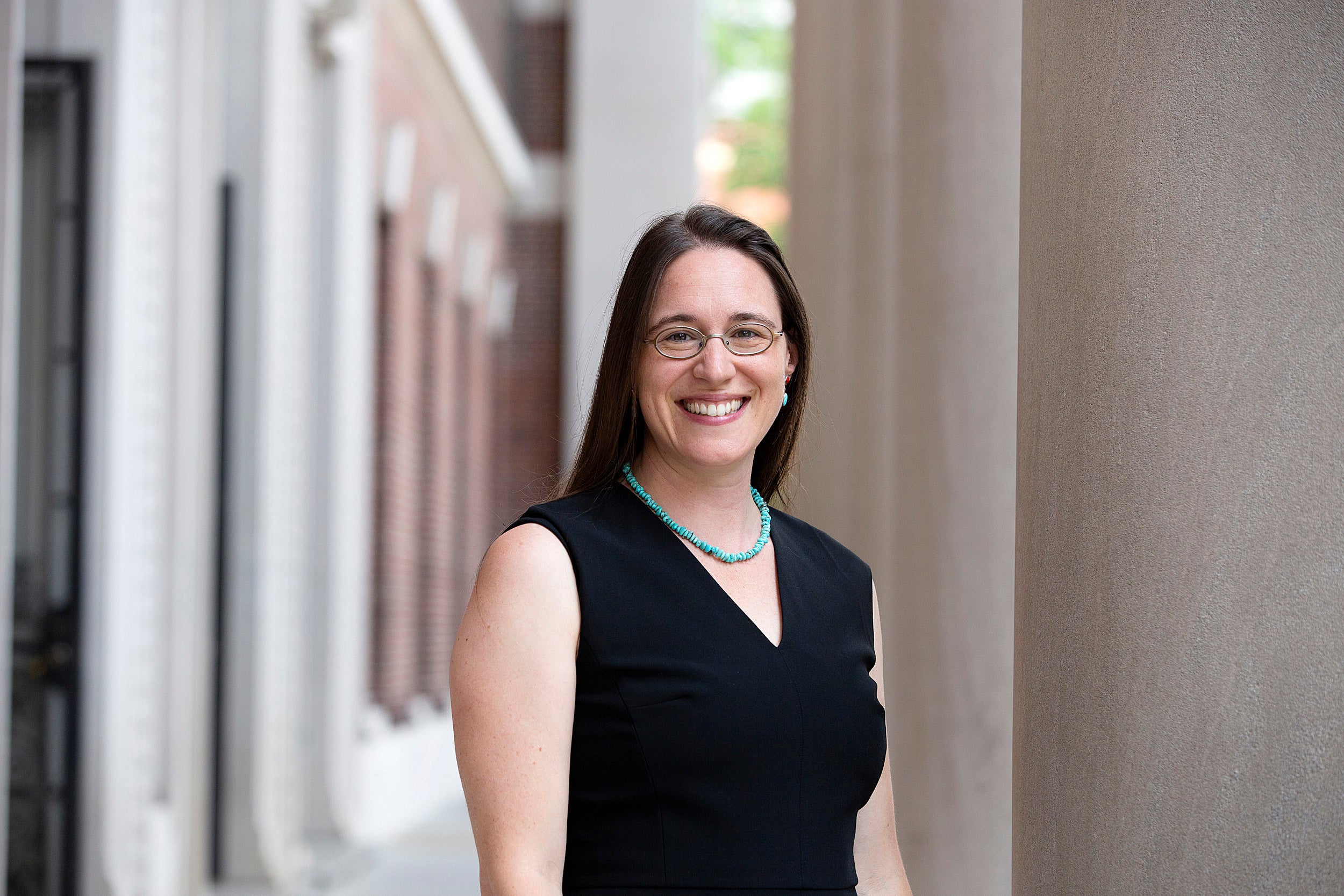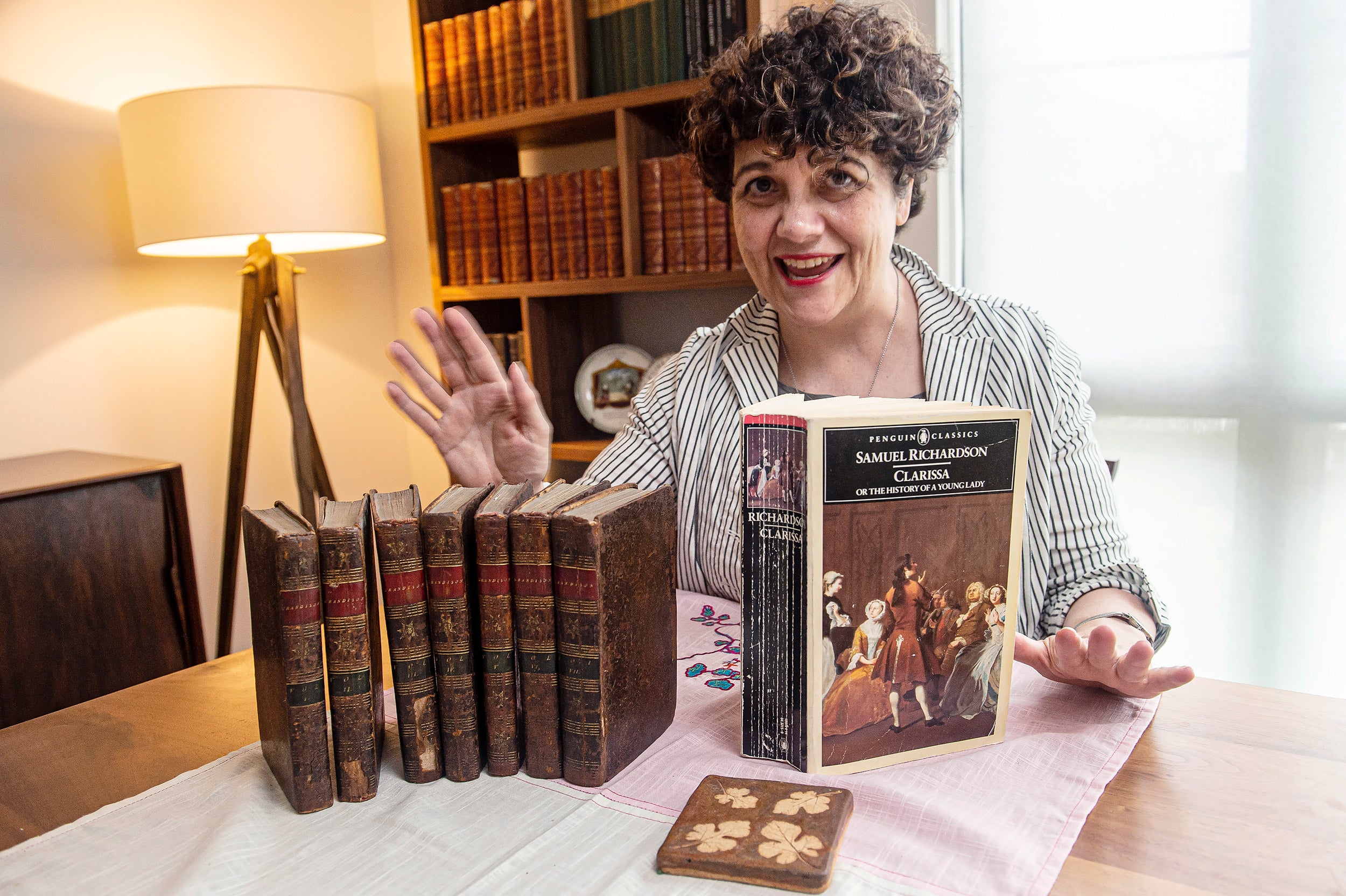
The class views a clip from the movie “Friends From College,” where a character’s editor suggests that he write a young adult novel. “That launched our discussion about the cultural status of YA fiction, misapprehensions about it, and why this is now the Golden Age of YA literature,” Leah Whittington said.
Photo by Leah Whittington
Reading as pleasure
LitLab brings literature to casual gatherings
Why don’t young adult fiction writers get the same respect as adult fiction authors? What’s the future for stand-up comedy? What are the ethics of reading “canceled” authors?
Every Friday, staff, faculty, enrolled students, and students on leave gather on Zoom to discuss these questions and many others in LitLab, a casual space focused on the myriad ways literature intersects with daily life. The group began meeting in September and is open to all members of the Harvard community.
English Professors Beth Blum and Leah Whittington created LitLab over the summer after the COVID-19 pandemic shut down campus and put an end to their frequent, casual, in-person encounters with students and colleagues. They envisioned LitLab as a place to have those serendipitous run-ins and foster discussions on topics not normally covered in a typical English course.
“We envisioned it as a lab where you try to figure things out and think through questions about contemporary literature and culture,” said Whittington, who is also associate director of undergraduate studies for the English Department. “And as in a lab, it’s better to have other people thinking with you about the questions and ideas than to be doing it by yourself.”
Whittington and Blum convened an 11-member student advisory board, many of them English concentrators. The board came up with weekly topics and associated readings for the semester, including articles, short stories, films, and audio narratives.


LitLab creators Beth Bloom and Leah Wittington.
Photo by Aaron Ye and Stephanie Mitchell/Harvard file photo
Each weekly meeting is led by a student convenor or two. Since September, the group has questioned the relevance of a literary canon, unpacked the storytelling methods of podcasting, and examined the ethics of reading “canceled” authors or works, among other topics. Participants have joined from across the University, including graduate students and staff members.
“We didn’t want the experience of LitLab to feel like another class or obligation,” said Blum, like Whittington an associate director of undergraduate studies. “We wanted the students to be involved from the very beginning in the structure of the discussions, so we developed this idea of having student conveners for each topic. They point us to some questions that they find really interesting or important, or a specific passage, moment, or clip, and open up the discussion for the rest of us. That [approach] democratizes the LitLab experience.”
Advisory board member Iman Lavery ’22 welcomed the chance to engage with other culture enthusiasts outside of class time.
“I was nervous about what it would look like in the Zoom format, and I’ve actually been really pleasantly surprised and excited about how well it’s been going,” said the English concentrator from Seattle. “I’ve [also] liked that it’s not just for people who are in the English department. [It’s open to] anyone who’s interested in the topic, or the pieces that we’re reading, or interested in literature but they don’t study it. I think it’s really accessible in that way.”
Whittington and Blum plan to run LitLab remotely into the spring semester. They hope that it will also provide a model for other faculty looking for new ways to engage students in academic and social ways around the study of texts.
Faculty in English have been exploring ways to create spaces to gather around literature “in the broadest possible sense” for some time, said Whittington, pointing out that literature encompasses not just the written word, but “works of imagination that people create to explore their philosophy, their politics, their identities and realities.”
“I appreciate the pandemic in some ways, because it gave us a clear reason to get this done. My hope is that LitLab will continue in a brick-and-mortar form, or in a Zoom form, when College life goes back to being in person.”
Blum added, “I really do see this as organically growing out of the department’s recent energies and drive toward listening to students and hearing about what students think is important in literary studies right now, to integrate new voices and new forms of media into the curriculum.”







